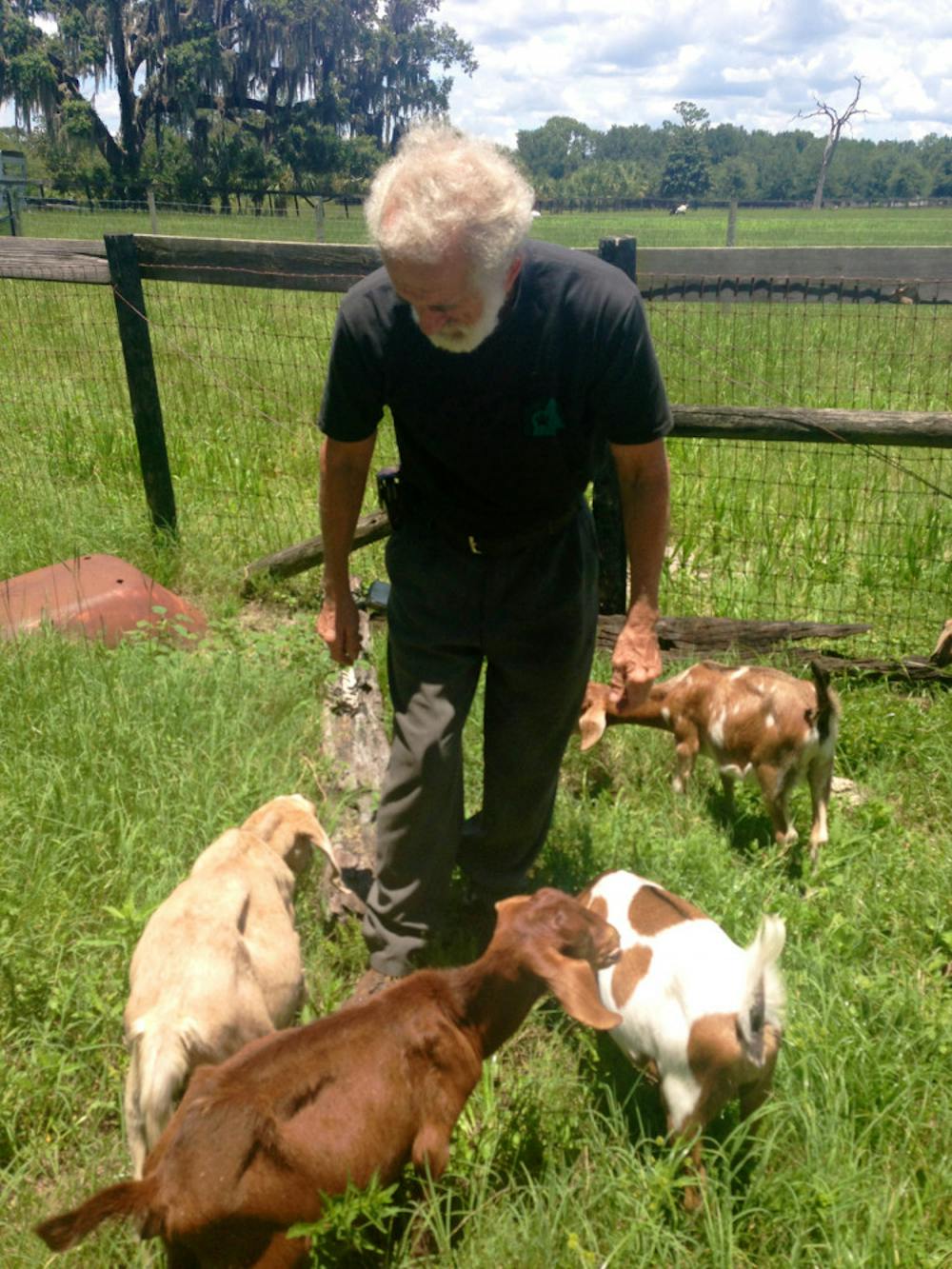Dispersed throughout 46 acres are 10 cows, 11 horses, 25 chickens, two roosters, five dogs, three donkeys and about 100 goats. It’s safe to say Charlie Meister has his hands full — usually with bottles and animal feed.
For the past three years, Meister, 72, has been posting ads in the classifieds section of The Alligator to spread the word about his goats and hopefully sell some.
“Students call me daily to ask about my goats,” Meister said. “They usually ask how much I’m selling them for and then say they will call me back but never do. I suppose they could think it’s a joke.”
Hidden behind hundreds of trees in Kanapaha Wildlife Sanctuary is Greathouse Farm on Southwest 67th Street.
Meister’s home sits on the property among pastures, horse stalls and the animals roaming his land.
If you get past the honking Chinese geese and clucking chicken pecking at your feet, you’re golden. Just watch out for Paulie — sometimes, she nips at strangers.
Paulie, an 8-year-old white Great Pyrenees with matted fur, is the feistiest of the five guard dogs that protect the farm from any unwanted visitors — including the three coyotes that “caused a ruckus” last year and feasted on some of Meister’s defenseless goats.
“Goats are kind, loving animals that don’t have a mean bone in their body, which makes them easy targets for prey,” Meister said.
About 20 kids (baby goats) were born on the farm a couple of months ago.
Talea, an 8-year-old goat who was born, bottle-fed and raised on the farm, just gave birth to two kids — one buck (male) and one doe (female) — but she only accepted the buck.
In the wild, the newly born doe would not last a day without her mother’s help, Meister said, but he bottle-feeds her multiple times a day.
“[Rejection] happens sometimes, and it’s good that way because I can use her milk to bottle-feed other kids”
Persuaded out of the pasture by a shaking cup of food, Talea followed Meister to the milking room.
She knows the routine, he said. She willingly jumped onto a metal platform and happily chowed down on feed as Meister began to milk her.
“The smaller of the two udders doesn’t need to be milked because her little guy is nursing on that teat,” Meister said.
Crouched down on one knee, his left hand squeezed the teat, and his right held an aluminum bowl with lukewarm milk from the first session earlier that day.
The milk squirts out in increments that match the power of his squeeze, hits the bottom of the bowl with the speed of a child’s squirt gun and slightly splatters on the sides.
Anjani Patel, a UF public relations senior, said she chooses to drink goat’s milk before cow’s milk because it’s healthier and tastier.
“Goat’s milk is smoother and has a sweeter taste than cow’s milk,” Patel said.
A 3-year-old buck that goes by the name Number 19 is the hot commodity and the reason for almost all of the kids at Greathouse Farm.
Don’t underestimate the fact that he’s young because he breeds with all the does, Meister said.
“He knows his way around the ladies,” Meister said. “He gets the job done.”
Meister said his goal is to transition his farm to solely raise goats, but he knows that is a huge transition that will take many years.
A version of this story ran on page 7 on 9/12/2013 under the headline "Number 19 and other goats still for sale"
Charlie Meister tends to goats on his farm in Gainesville. Meister owns about 100 goats, 10 cows, 11 horses, 25 chickens, two roosters, five dogs and three donkeys.






